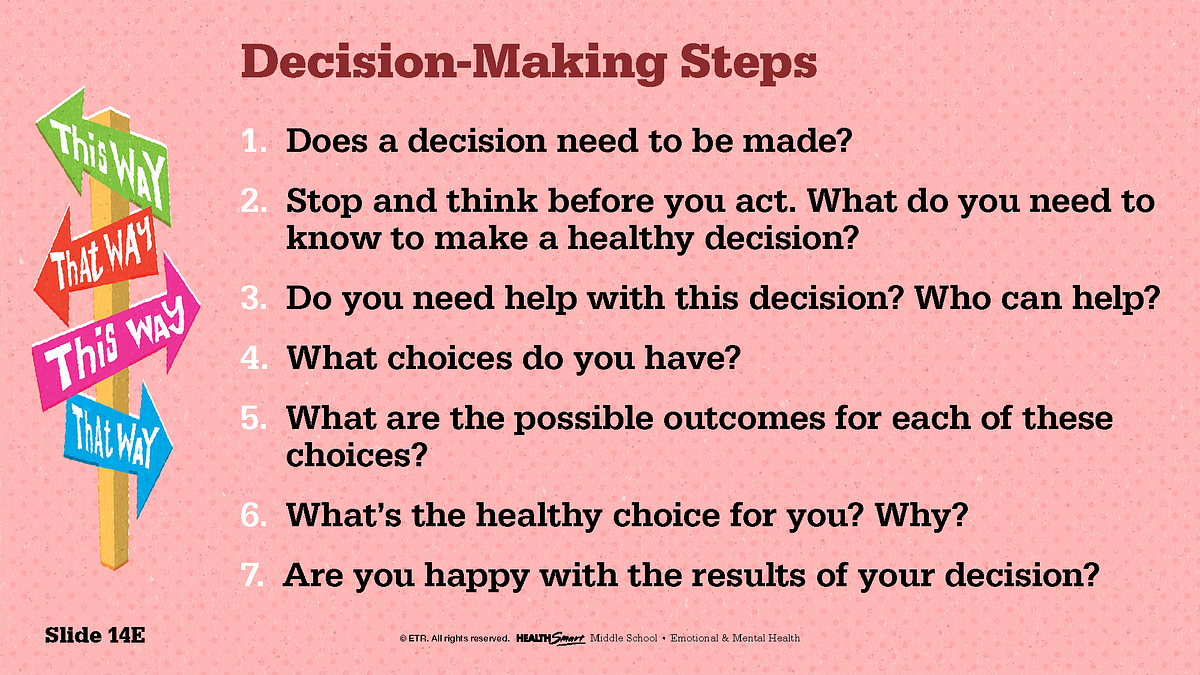Choosing Wisely: Methods to Improve Your Choice Abilities
Making determinations is an integral part of our everyday lives, influencing all aspects from our work professions to our intimate relationships. However, despite the significance of making decisions, many people find it difficult with it, often being overwhelmed by the choices present or stopped by the anxiety of making the bad choice. In a world that demands quick cognition and effective solutions, perfecting the art of intelligent decision-making has never been more crucial.
In this piece, we will explore effective techniques to boost your decision-making capabilities, utilizing insights from psychology, critical thinking, and affective intelligence. We will talk about how to assess options effectively, make assured choices under pressure, and overcome common obstacles like decision fatigue and getting stuck in overthinking. Whether you are a manager making difficult calls, a worker navigating work options, or simply someone aiming to make improved choices in life, the tools and strategies presented here will empower you to make decisions with clarity and self-assurance.
Proven Strategies for Smart Decisions
Creating smart choices commonly relies on the skill to assess options explicitly and rationally. A effective technique is to employ decision-making structures that help systematize thought methods. Tools like the SWOT analysis or the Decision Grid can highlight the pros and cons of each choice, allowing you to balance them against your principles and aims. By arranging your opinions, you can remove obstacles and focus on what genuinely matters, culminating in more educated and decisive choices.
A further critical technique involves developing interpersonal awareness to enhance your decision capabilities. Grasping your emotions and those of people can offer significant insights, especially in group contexts or when encountering important decisions. By remaining conscious of emotional factors, you can lessen biases that may obscure your decision-making. Identifying when fear or excessive confidence may lead you astray allows for a greater equitable approach, enabling you to create decisions that correspond with both logic and intuitive understanding.
In conclusion, cultivating consistent practices that reinforce decision-making skills is essential. Simple practices, such as setting aside time for introspection on prior choices or proactively seeking different perspectives, can enhance your ability to analyze circumstances thoughtfully. Over time, these habits cultivate a mindset that embraces progress and knowledge, which enhances your skill for making sound decisions when it matters. By integrating these strategies into your daily life, you lay a solid groundwork for forming wiser choices throughout your experience.
The Psychology of Optimal Decision Processes
Grasping the psychology behind our choices is essential for developing the art of decision-making. One key aspect is the recognition of biases in thought that can obscure judgment. For case, the tendency to favor information that confirms one's beliefs leads people to prioritize information that aligns with their existing beliefs while disregarding contradictory evidence. Recognizing these biases can allow decision-makers to pursue a more fair perspective, ultimately leading to smarter choices.
Emotional awareness also plays a significant role in optimal decision-making. The capacity to identify and control one’s emotions, as well as to connect with others, enables individuals to evaluate circumstances more holistically. This emotional adeptness can help better decision-making in pressurized environments, allowing for decisions that correspond better to both personal values and the wider consequences for those involved.
Additionally, the setting in which decisions are made can greatly influence outcomes. High-stress environments may cause impulsive decisions, while calmer settings encourage comprehensive consideration. Embracing mindfulness practices can help nurture mental clarity, allowing people to approach decisions with greater attention and less stress. By creating https://yamcode.com/ for decision-making, people can utilize both intuition and logic more effectively, maintaining harmony that supports more effective choices in their choices.
Strategies to Overcome Decision Overwhelm
One effective strategy to mitigate decision fatigue is to simplify your daily choices. Creating routines can help limit the amount of decisions you need to make daily. For example, planning your meals for the week or setting aside your clothes the night before can conserve mental energy. When you eliminate trivial choices, you reserve your cognitive resources for more important decisions that require your complete focus and analytical skills.
An additional method is to impose time limits for decisions. By giving yourself a specific timeframe, you can stop prolonged consideration that often leads to uncertainty and fatigue. This strategy encourages quicker decision-making and helps steer clear of the trap of over-analyzing options. By embracing a sense of urgency, you force your mind to focus on key factors, allowing you to make more confident choices without getting bogged down in excessive details.
Finally, practice self-care to maintain your mental clarity. Routine exercise, adequate sleep, and mindfulness practices can greatly enhance your choice capabilities. When your mind is clear and energetic, you are better equipped to handle complex choices without feeling burdened. Integrating these practices into your routine helps maintain your choice-making stamina, ultimately enabling you to make better choices with reduced anxiety.
